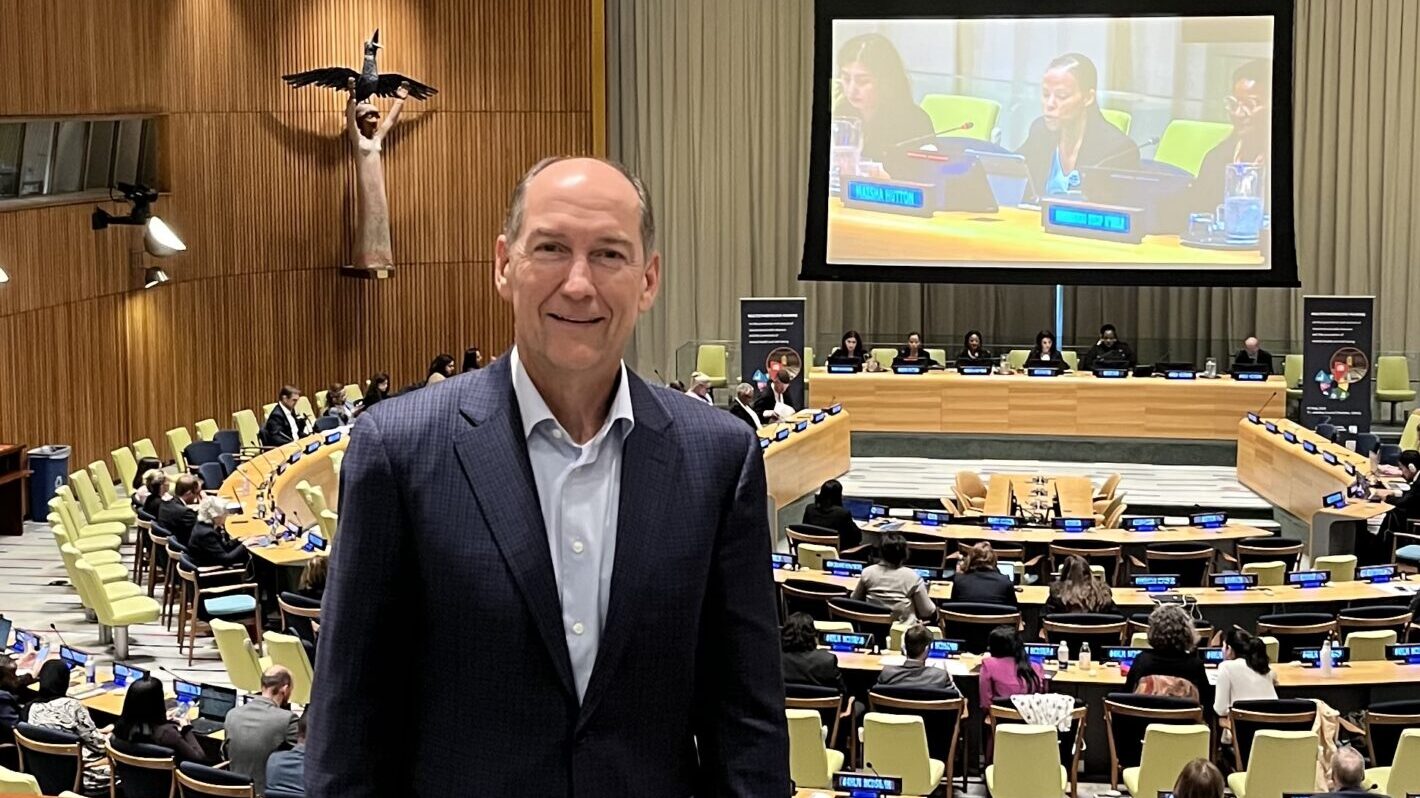On May 2nd in New York City, GloPAKH’s Executive Director Brian Kennedy participated in the UN Multistakeholder Hearing On the Prevention and Control of Non-communicable Diseases and the Promotion of Mental Health and Well-Being.
Madame Chair, excellencies and distinguished delegates, the Global Patient Alliance for Kidney Health is comprised of 34 national advocacy organizations working in support of the hundreds of millions of people with lived experience of kidney disease. GloPAKH is the patient voice of the forgotten NCD: Kidney Disease. Chronic kidney disease affects more than 10% of the world’s population, or approximately 850 million people, and is projected to be the world’s fifth leading cause of death by 2040.
Kidney disease patients often share risk factors for other chronic conditions and tend to have co-morbid conditions. In fact, approximately 50% of CKD patients have cardiovascular disease. Diabetes is the number one cause of CKD and accounts for 30 percent of all CKD patients. Thus, there are real opportunities to intervene early across the health care delivery spectrum addressing the collective burden of these related and interconnected cardio-kidney-metabolic conditions.
Yet, kidney disease goes largely undiagnosed, as it remains asymptomatic until it reaches advanced stages. Delaying diagnosis of stage 3 kidney disease by even one year can result in a 40% increase in disease progression to late-stage kidney disease, and a 63% increase in the risk of kidney failure requiring replacement therapy such as transplant or long-term dialysis treatment.
Research has validated that timely detection of kidney disease through proactive screening and case finding, coupled with risk assessment and intervention, has the potential to reduce both the morbidity and mortality associated with CKD and its complications, including cardiovascular disease. Further, for every $1 invested in early detection and treatment, $7 is saved in the costs of managing advance stage disease.
As noted by the representative from Guatemala – who we thank for its leadership in proposing the World Health Assembly Resolution on prevention and control of kidney disease – The High Level Meeting political declaration is the opportunity to:
- To pull CKD into the frame of the recognized and prioritized NCDS, along with cardiovascular disease, diabetes, cancers, respiratory and mental health
- To reset the global NCD strategy so that it gives greater prioritization to prevention, early detection and treatment, and holistic care.
- And for members states to invest in health systems so they might integrate prevention, early detection, and treatment of kidney disease into primary care strategies and national health policies – and inclusion of kidney health into UHC benefit packages.
In conclusion:
There is an urgency to act now. We need shift our focus to proactive prevention strategies and vigilance through screening and case finding – and not merely reacting by attempting to manage the growing NCD burden. The benefits of a proactive approach are many, to patients and caregivers, by reducing the stress on overburdened HCS, through societal gains in productivity, quality of life and improved mental well-being, and to a more sustainable climate.
Finally, the Global Patient Alliance for Kidney Health supports the recommendations of the NCD Alliance and align with the call to lead on NCDs.
This statement was prepared for the UN Multistakeholder Hearing held on May 2, 2025.

